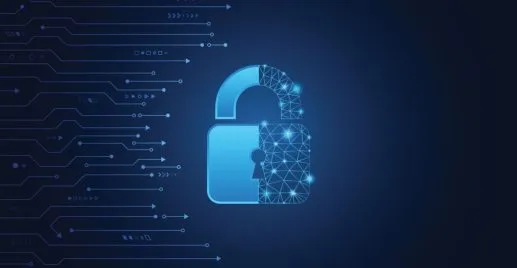Cybersecurity is a subset of information security that prevents unauthorized access to computers, networks, programs, and data. This is because cybersecurity covers corporate and personal data protection; the fields of cybersecurity and data protection overlap.
Both parts of information security place a premium on the security objectives of confidentiality, integrity, and availability.
Table of Contents
Understanding Cybersecurity
Cybersecurity studies ways to protect devices and services against malicious actors such as hackers, spammers, and cybercriminals. While certain cybersecurity components are meant to strike first, most experts today are more concerned with establishing the best strategy to defend all assets from attacks.
In the media, cybersecurity has been used as a catch-all term to protect against all types of cybercrime, from identity theft to international digital weaponry. These descriptions are correct, but they do not represent the full nature of cybersecurity for persons who do not have a computer science degree or experience in the digital business.
Types of Cybersecurity
Because of new technical advancements, cybersecurity has various domains that continue to increase over time. It is classified into several types:
Application Security
A set of best practices, functionalities, and features added to an organization’s software to aid in preventing and remedying threats originating from cyberattacks, data breaches, and other sources. Antivirus software, firewalls, and encryption software are examples of programs that block illegal access.
Cloud Security
Access management, network security, and secure cloud setups protect cloud platforms, services, and data against illegal access and disruption. Encryption and disaster recovery are two examples of cloud security.
Critical Infrastructure Security
Concerns are safeguarding systems, networks, and assets whose continuing functioning is critical for maintaining a nation’s security, economy, and the general population’s health and safety. Hospitals, power systems, and traffic signals are a few examples.
Internet of Things Security
The Internet of Things (IoT)—networks of linked devices, appliances, and machines loaded with software and sensors that transmit and receive data over the Internet—creates new opportunities and dangers. IoT security necessitates creative thinking to protect the organization and its consumers from attackers and data exploitation.
Network Security
Works to prevent illegal access to internal networks. It safeguards the internal infrastructure by preventing access to it. Extra logins, new passwords, and controlled internet access are some examples.
Importance of Cybersecurity
Given the rising number of users and devices in the modern organization, as well as an increased number of data, the relevance of cybersecurity is growing. The growing volume and sophistication of cyber attackers, as well as their attack strategies, aggravate the problem. Learn more about the advantages of cybersecurity.
Maintains Trust and Trustworthiness
Customers and investors rely on firms like Kaesim Cybersecurity to build confidence and reputation. Breaches negatively influence an organization’s reputation, resulting in a substantially reduced audience base. In contrast, when a corporation has a track record of protecting business and customer data, its client base grows.
Assists the IT team
Cyber-attacks result in regulatory fines and customer claims, resulting in low sales and revenue and impacting critical parts of continuity. Furthermore, cybercrime has the potential to disrupt regular operations.
Sophisticated hacking techniques have emerged as technology has advanced. The IT team should keep up with the quickly changing developments in cyberspace. An experienced IT team armed with tools, tactics, and help, as well as extensive knowledge, can tackle even the most sophisticated cybercrime.
Improved Data Handling
Data is crucial to marketing and product initiatives. Losing it to hackers or rivals may necessitate starting from scratch, giving other organizations a competitive advantage. As a result, to ensure that data security requirements are fully implemented, enterprises must constantly monitor their data. Alongside security, cybersecurity helps with operational efficiency.
Helps the Remote Workplace
Employees working from different places can now access several remote models for their workflows thanks to the remote working model. It may be disconcerting for businesses to send sensitive data worldwide, where cybercrime can occur via IoT, Wi-Fi, and personal devices.
Organizations must protect sensitive data since remote work has increased the average data breach cost by $137,000. Sensitive data, tactics, and analytics are constantly at risk of being hacked and disclosed. However, cyber security can safeguard residential Wi-Fi from tracking users’ data by acting as a secure data storage center.
Aids in the Preservation of Reputation
Client retention and trust in the brand take years to develop in any firm. Data breaches significantly damage a company’s reputation. Organizations can avoid unexpected setbacks by implementing a cyber security system.
Access and authentication can be strengthened using network and cloud security technologies. This can pave the road for future recommendations, endeavors, and growth.
Cybersecurity for Business Improvement
Threats are widespread, spanning industries and the public/private sector, affecting large and small firms. Organizational defenses must be strengthened across people, processes, and technology.













